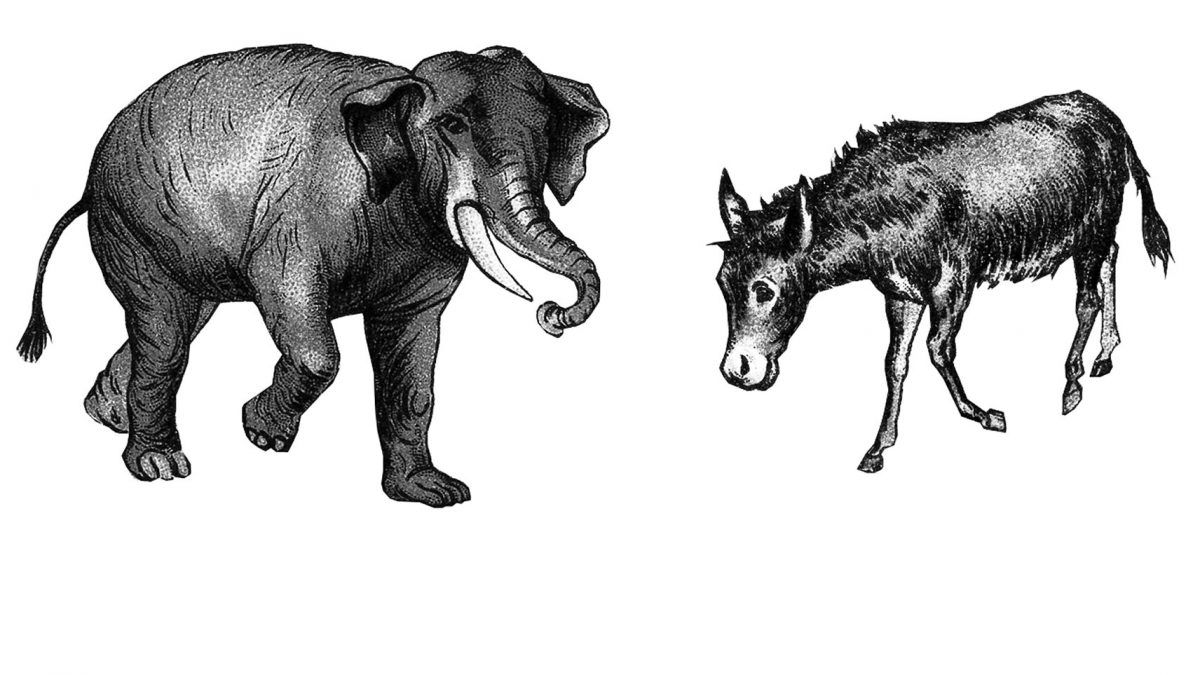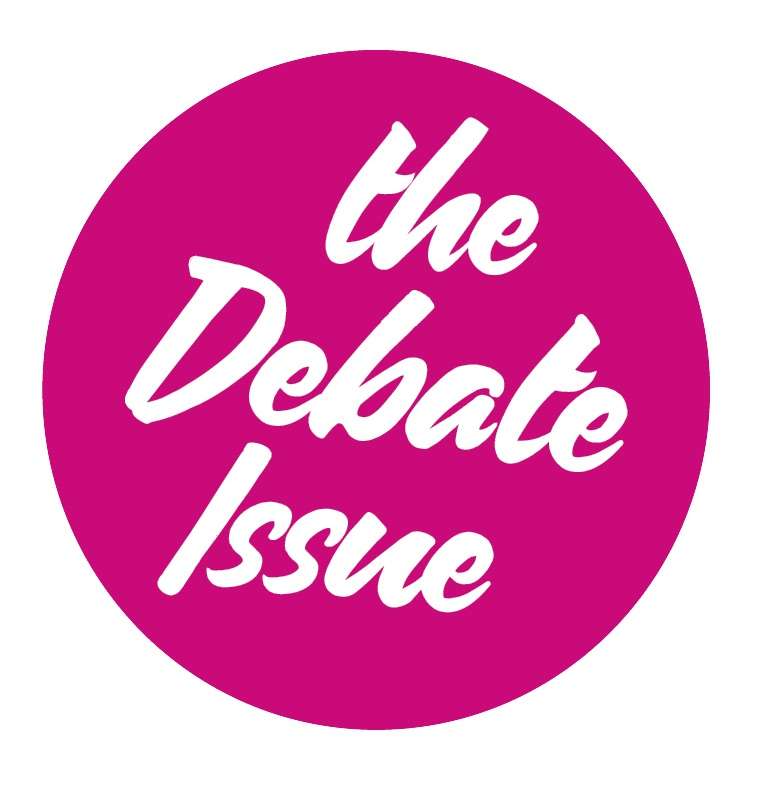Debate: Libertarians Should Work Within the Two-Party System
Or is the L.P. our best bet for making a difference?

AFFIRMATIVE:
Republicans Get Elected; Libertarian Party Members Don't
Rep. Thomas Massie

It's my observation that libertarians argue about a lot of things, but at the end of the day we all want to reduce the size and scope of the federal government. So is it wise or useful for libertarians who want to shrink government to run for office as Libertarians? My answer is the same as my vote on the Republican version of Obamacare this term: Hell no!
First, there's the existence proof. Even on the worst days, there are two libertarians [Massie and Rep. Justin Amash (R–Mich.)] on the floor of the House of Representatives. On the best days there are a dozen. None of these libertarians are in the Libertarian Party. So if you want to introduce libertarian bills, force roll call votes to expose faux fiscal conservatives, speak on the floor about free markets, or vote for laws to protect civil liberties, you darn well better have a D or an R beside your name.
When I arrived in Congress, I was struck by the architecture. Everything is bifurcated. Two cloakrooms each for the Senate and House chambers. Two backrooms for every hearing room in the Capitol. I marveled at how two centuries of architects had successfully conspired, with marble, granite, and oak, to exclude a third party.
Truth be known, there are at least six parties in Congress, but they're shoehorned into the American concept of red team vs. blue team. If you want to field another team, you have to either completely replace one that's there now (within an election cycle or two) or work inside one that already exists. The most expedient path for libertarians is to work within the red team.
(To everyone with Trump Derangement Syndrome, please calm the hell down—I am not advocating that libertarians work with Russians.)
If a pure-as-the-wind-driven-snow Libertarian actually got elected, how long would he or she last before selling out? About an hour. You see, the first thing we do at the beginning of every Congress is to swear an oath to the Constitution as it exists, not as we want it to exist. Even after being trued up with 27 Amendments, the document is still chock full of stuff that sends many Libertarians into apoplexy: eminent domain, intellectual property, income tax, government-regulated currency, and those oh-so-dreadful post roads. "Support and defend" that at your national convention!
Now that I've fully alienated half my Twitter and Facebook followers, let me make the counter-case for the Libertarian Party.
"If a pure-as-the-driven-snow Libertarian actually got elected, how long would he or she last before selling out? About an hour."
There's a concept in Congress that we conservatives call True North. When you succumb to pragmatism and pursue a path that's 10 or 20 degrees off True North, it's best to admit, if only to your trusted colleagues, that you've gone a bit squishy—because if you don't, you'll soon forget where North is. Some of our Republican colleagues have their compass settings 180 degrees askew. They are completely lost. With aplomb and conviction they can make the case that all this country needs to be great again is another $100 billion in the next omnibus. So I must concede that the Libertarian Party and its passionate members are the keepers and arbiters of True North for liberty and fiscal conservatism.
Let me end with this Socratic inquiry: A mediocre libertarian can make a great Republican, but is the converse true as well?
NEGATIVE:
We Can Help Kill the Two-Party Monopoly
Bill Weld
Virtually everyone in the United States is coming to the sad conclusion that the two-party monopoly of Republicans and Democrats in Washington, D.C., is choking off creative policy making, to the detriment of the country at large.
This unhealthy situation has been years in the making. Both parties had noble antecedents: Thomas Jefferson's Democratic-Republican Party, which prevailed in 1800, and the Free Soil/Republican coalition that elected Abraham Lincoln in 1860. But despite being born in dynamism, both parties are now ending in orthodoxy—brittle, calcified orthodoxy.
Decades of hyper-gerrymandering congressional districts have produced a House of Representatives composed of extreme-left Democrats and extreme-right Republicans, who fear defeat only from a primary opponent even further out on the fringe. The result is that neither caucus has the wisdom or the incentive to reach across the aisle, even when a teenager could quickly see a middle approach that would advance the public interest without harming anyone.
This "duopoly" status quo obviously needs to change, but where will the change come from? One of the existing parties?
Not bloody likely. Rs and Ds in Washington are obsessed with being re-elected so they can continue to enjoy the perks of office and the adulation of those who elected them, even if only by a slim majority. To quote from the musical Oklahoma, with them it's all or nothin'—either they cling to office or they're voted out. They must demonize their opposition, stir up their base, or die.
So we cannot appeal to sitting members of the R party or the D party to mend their ways, because they don't see that their ways need mending, and even if they did, they would view such internal reform as against their self-interest. Their only reward is re-election, and that by definition means the status quo.
It is a truism in economics that competition produces more efficient results than monopoly, and the same goes for politics. So there is a way out of this mess, and that is the introduction of a principled, entrepreneurial third party to compete for votes with the Rs and the Ds.
The Libertarian Party—fiscally responsible, socially tolerant, and on the ballot in all 50 states—could easily play this role. It has fully developed and thoughtful policy views. If pollsters described the R, D, and L parties by their positions, the Ls would have a majority in the polls right now. As it stands, we could well elect the next president of the United States.
It has been rightly pointed out that the odds of a third-party candidate being elected in 2020 are at least as good as the 2014 odds of Donald Trump being inaugurated in January 2017 or the 2015 odds of Emmanuel Macron being elected president of France in 2017.
If we want a new broom to sweep things clean in Washington, the answer is not the R party or the D party. It is the Libertarian Party.
This article originally appeared in print under the headline "PROPOSITION: Libertarians Should Work Within the Two-Party System."


Show Comments (305)